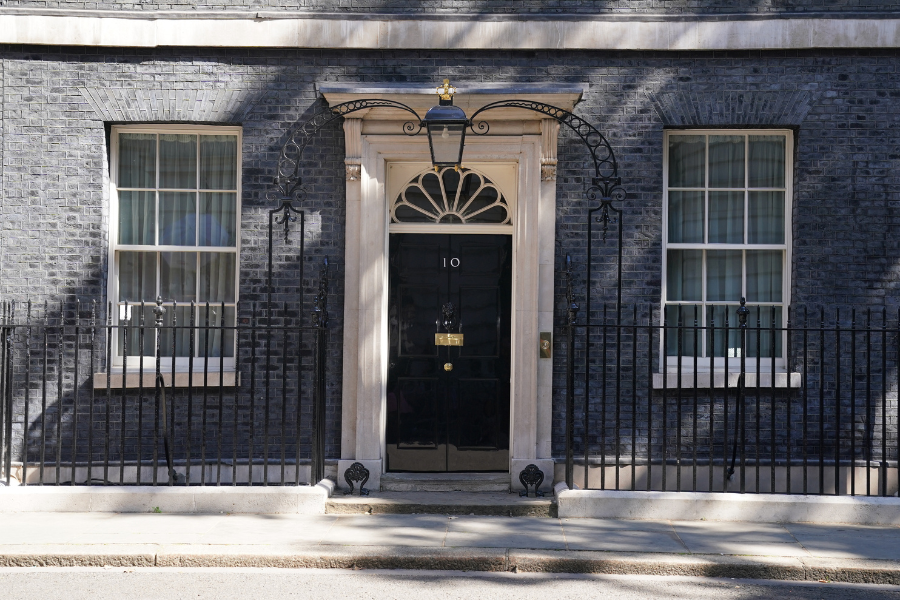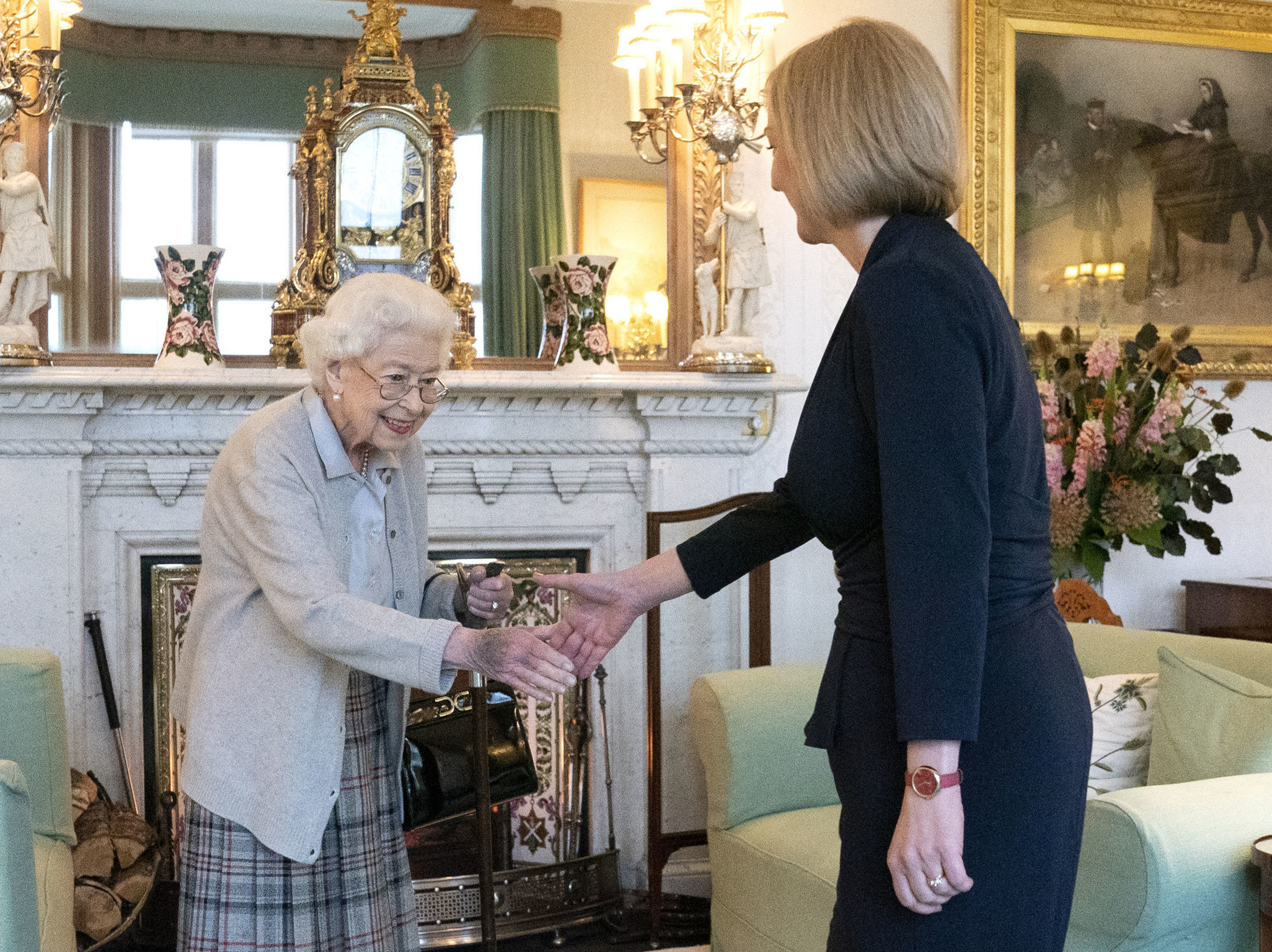
LIZ Truss has become Prime Minister after winning a bruising leadership contest, but her problems have only just begun.
The first few months of her premiership will see her having to try to deal with challenges ranging from a spiralling cost-of-living crisis to infighting among the Conservative party.
In an online briefing today, Dr Hannah White, acting director of the Institute for Government (IFG), said one of the key issues for Truss would be showing the public that she could deliver on the many commitments made during the leadership campaign.
“She is going to have to strike a balance between the things she told the Conservative electorate she would do and the things she now knows the British public will want her to deliver - and those are not necessarily the same things,” she said.
Of course, one of the big questions will be what the new Prime Minister’s relationship with Scotland will be like – while she was keen to emphasis growing up in Paisley during the leadership campaign, she also caused a storm of controversy by saying it was best to “ignore” Nicola Sturgeon.
Here we look at some of the other domestic issues which are top of the Prime Minister’s in-tray, according to experts from the Institute of Government.
Energy prices...and blackouts?
Truss is under enormous pressure to offer help with spiralling energy prices and the biggest squeeze on household incomes since the end of the Second World War.
Dr Gemma Tetlow, chief economist at the IFG, said: “Whatever Truss hopes for her premiership it is likely to be dominated by the economic problems she faces.
“Arguably she comes into the worst economic position perhaps for any new Prime Minister since Margaret Thatcher in the 1970s.”
Reports have suggested Truss is considering plans to freeze energy prices until the next general election in 2024.
Tetlow said this would provide certainty to businesses and households on the costs they would be facing and would be simpler to implement than more targeted support.
But she warned: “There are clearly downsides to it as well – it could be enormously expensive, it potentially gives quite a lot of support to businesses and households who aren’t in particular extreme need at the moment.
“One thing will be interesting to see how the government deals with this as a consequence, is that by not allowing the price to rise that means that businesses and households aren’t getting the signal to cut back on their energy usage.
“So there is more of a risk now we might run into energy supply shortages and during the campaign for leadership Truss was quite clear she didn’t feel it was right for the government to be issuing messages to people telling them to cut back on their energy usage, that was a bit too nanny state.
“But if she does go for this policy of capping costs, there will be a greater need for more messaging and thinking about the management of energy supply as well as the cost of it.”
High-stakes Brexit battle
The first major parliamentary test the new Prime Minister is likely to face is over the Northern Ireland Protocol Bill, which is expected to face a battle when it comes to the House of Lords in the coming weeks.
Truss has signalled she will continue to pursue the Northern Ireland Protocol Bill, with aim of allowing the UK to unilaterally rip up Brexit arrangements for Northern Ireland – risking a trade war with the EU.
Alex Thomas, programme director at the IFG, said: “An uncertain high stakes game will play out over the course of the coming months.
“But I think the ticking clock on that to really watch for is that the deadline for the formation of the Northern Ireland executive is the 28th October.
“So there is a backstop as it were to what she chooses to do on the Northern Ireland protocol bill and how she chooses to engage over the course of the coming weeks with the European Union.”
Despite warnings about the scale of the task, during her leadership campaign Truss promised to scrap all remaining EU regulations by the end of 2023.
Thomas said: “I would advise her certainly to pick her priorities on that and focus on the opportunities around European legislation, rather than doing a fairly pointless superficial exercise to review the whole canon of law.”

The ghost of Boris past
In his defiant leaving speech, Boris Johnson pledged to offer his support to the government and called for his party to get behind his successor.
But he also hinted at a comeback as he likened himself to Cincinnatus, a Roman dictator who according to one version of the story, did return to lead again in order to put down a popular uprising.
Tim Durrant, associate director at the IFG, said: “He is clearly not going to go quietly, I don’t think he is going to do a David Cameron, he is not going to fade into the background for a few years.
“He is not going to do a Theresa May I imagine - being a diligent backbench MP who asks pointed questions every now and again.
“His intention at the moment is to stay in the Commons – I would be surprised if he lasted more than a year, he doesn’t seem to me like a very much background personality.
“He has such a following, he has such a presence in UK politics he is always going to cause trouble for the next PM.”
In the meantime, Johnson is still being investigated by the Commons privileges committee investigation over whether he misled the House of Commons - which Truss has said she would vote to scrap.
Durrant said any unit in the party at the beginning of Truss’s premiership is also at risk if she goes ahead with spending billions on support in help for energy bills – "testing some Conservative backbencher’s vision of what the government is for”.
“People talk about the honeymoon period lasting two days or maybe until conference – it’s not going to last long, is it,” he added.
Risking a snap election
The final result of the Tory leadership contest saw Truss secure 57% of the party vote – adding up to just over 81,000 members.
SNP Westminster leader Ian Blackford is among those who have called for an early general election to take place – but Truss appeared to rule this out in her victory speech saying: “We will deliver a great victory for the Conservative party in 2024”.
Durrant said: “Theresa May said she wouldn’t go for a general election and then did.
“But Theresa May had a big poll bounce – she triggered article 50, she had Jeremy Corbyn as opposition leader, she saw the polls and she thought now is the time to go for it. Obviously that didn’t work out for her.
“I just cannot see anything like that happening….[Truss] is not riding any kind of wave of good news and the opposition have been leading in the polls for six months or so.
“She might get a little bounce as she takes over and people see the change from Johnson, but there is a big way to close the gap with Labour and she has got so many other things to be thinking about – I don’t see what she would gain from it.”
White added: “She will feel now she actually has got her opportunity to govern she can do things differently to her predecessors, that is kind of what all Prime Ministers have to believe when they come in.
“I think she wants to have a go at the job – the big risk of going early is you lose the election straight away and you haven’t even had a go.
“That is why my betting is it is going to be [an election in] 2024.”







